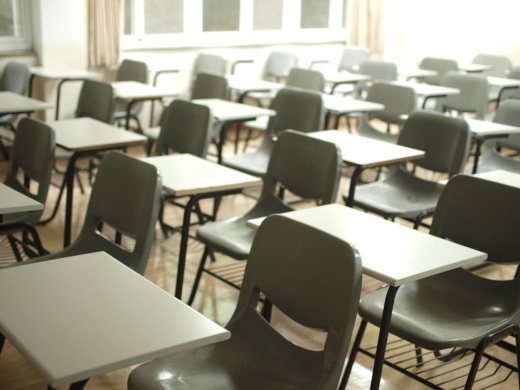The bill passed with bipartisan support from senators in a 30-1 vote. It now heads to the House.
“Teachers have shown incredible resilience in Texas and commitment,” said bill author Sen. Brandon Creighton, R-Conroe. “They're not just educators, they're the backbone of our communities and our schools, and they're there each day for our kids.”
What you need to know
Teachers in districts with 5,000 or fewer students would receive a one-time bonus of $10,000, while teachers in districts with over 5,000 students would receive a $3,000 payment.
Lt. Gov. Dan Patrick said the bonuses will bring teachers in smaller rural districts, who typically receive lower salaries, “up to parity” with urban and suburban teachers.
The state is not allowed to modify teachers’ contracts during a school year, but lawmakers said the raises would become permanent during the 2024-25 school year.
“Senate Bill 2 is an opportunity to honor [teachers], to validate and support them, and to ensure that they know that we're investing [in] their purpose-driven decision to enter the field of education as professionals and to remain in that field,” Creighton said.
Creighton’s proposal would also increase the basic allotment—the base amount of money schools receive per student—from $6,160 to $6,235. Schools use the allotment to pay for daily operations, teacher salaries and more.
Texas ranked 41st in the nation for per-student funding in 2021, according to research from Education Week.
Some Democratic senators asked why the bill did not add more money to the basic allotment, arguing the proposed $75 increase “is not even keeping pace with inflation.”
“What we are doing for teacher pay alone would be the equivalent of a $345 increase to the basic allotment,” Creighton countered.
SB 2 also doubles state funding for school safety and security. The state gives school districts $10 per student and $15,000 per campus. Schools can use the funds for a variety of security measures and upgrades, but many administrators say it isn’t enough.
Districts would receive $20 per student and $30,000 per campus if SB 2 becomes law.
What’s next?
SB 2 now heads to the House for consideration. Increasing public school funding is not on Gov. Greg Abbott’s agenda for the third special legislative session of the year, which began Oct. 9. However, leaders from both chambers said it is a top priority.
Abbott said Oct. 12 he would add school finance to the agenda if lawmakers sent a bill to create education savings accounts, a voucher-like program, to his desk. That evening, the Senate passed SB 1, which would set aside $500 million in taxpayer dollars to help families pay for private school tuition.
“I want to make sure we provide a carrot to make sure this legislation gets passed,” Abbott said at an event hosted by the Texas Public Policy Foundation, a conservative think tank. “Once [education savings accounts] are passed, I will put on the legislative call the full funding for public education, including teacher pay raises for teachers across the state.”
Only the governor can set the agenda for a special session, but lawmakers can agree to pass bills outside his directive. Abbott can sign or veto legislation once it reaches his desk.
Other legislation
Senators also passed SB 7, a bill that would prevent private companies from requiring that their employees or contractors be vaccinated against COVID-19, with a 19-12 vote Oct. 12. Similar legislation has been filed in the House.
Two proposals to increase border security were approved by the Senate:All three bills were sent to the House.





